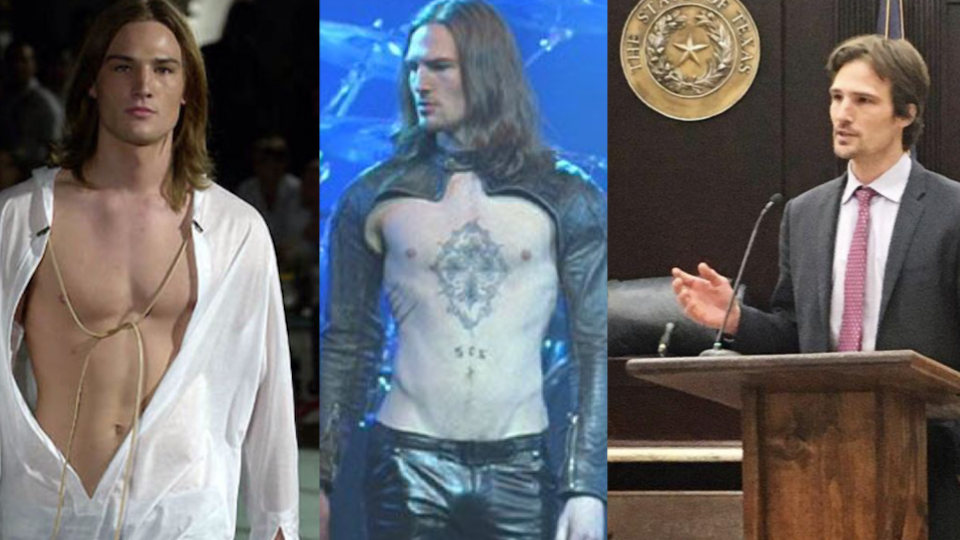CANNES, France — Netflix Co-CEO Ted Sarandos spoke at the virtual edition of content trade show Mipcom today, and he expressed his surprise at the fact that “we’re having a discussion about censoring storytelling” in 2020 America, after an East Texas grand jury last week voted to indict the streaming network on felony obscenity charges.
As XBIZ reported last week, local District Attorney Lucas Babin filed charges in Tyler County, Texas — a "Deep-Red" county outside of Houston, close to the Louisiana border — alleging that the French coming-of-age drama “Cuties” (“Mignonnes”), which is currently available for streaming on Netflix, “appeals to the prurient interest in sex and has no serious literary, artistic, political or scientific value.”
Sarandos’ comments at Mipcom come only a few days after being accused by name by DA Babin for “issuing or selling or providing or delivering or distributing or disseminating or transmitting or publishing or exhibiting or presenting or advertising the film, […] offering or agreeing to issue, sell, provide, deliver, distribute, disseminate, transmit, publish, exhibit, present, or advertise” the film.
In his indictment, DA Babin wrote that Netflix “knowingly [promotes] visual material which depicts the lewd exhibition of the genitals or pubic area of a clothed or partially clothed child who was younger than 18 years of age at the time the visual material was created, which appeals to the prurient interest in sex, and has no serious literary, artistic, political or scientific value.”
According to a report by entertainment news site Deadline, Sarandos told the Mipcom audience, “it’s a little surprising in 2020 America that we’re having a discussion about censoring storytelling."
“It’s a film that is very misunderstood with some audiences, uniquely within the United States,” Sarandos pointed out, adding that “the film speaks for itself."
Sarandos described "Cuties" as "a very personal coming-of-age film, it’s the director’s story and the film has obviously played very well at Sundance without any of this controversy and played in theaters throughout Europe without any of this controversy.”

A Texas DA With Intimate Experience of Steamy Hollywood Content
Tyler County District Attorney Lucas Babin, the East Texas officer of the court that is behind the headline-grabbing prosecution of Netflix for “prurient content,” is himself no stranger to Hollywood.
The 41-year-old Lucas Babin is the son of Brian Babin — a religiously-inspired dentist-turned-Republican-politician currently serving in the U.S. Congress as Representative for the 36th District of Texas.
Before joining his father in the world of right-wing East Texas local politics, Lucas Babin had a former career as a fashion model and Hollywood actor.
As a fashion model, Babin specialized in a particularly steamy look, appearing scantily clad in solo and in menage-á-trois scenarios with other models for shoots that still can be easily found online.
As an actor in his 20s, Babin also parlayed his chiseled physique into a string of minor “hunk roles,” appearing in Rian Johnson’s debut film Brick (in the role of “Big Stoner”), in “School of Rock” (as the slimy, perpetually bare-chested rock musician Spider), in an Alanis Morissette video (as “Handsome Prince”) and in the soap opera “The Young and the Restless.”
Last week, after gaining incredible amounts of publicity for his indictment of Netflix, Babin revealed that he had decided to indict after “after hearing about the movie ‘Cuties’ and watching it.”
“I knew there was probable cause to believe it was criminal under Section 43.262 of the Texas Penal Code,” Babin explained about his highly unusual attack against one of the largest corporations in the same mainstream entertainment industry that he left around 2007, after a lackluster career, to join the family business.
The 'Patchwork' Problem
DA Babin's publicity stunt against Netflix is particularly worrying in the context of current debates about the elimination of Section 230 protections. Several of the projects that are currently being looked at in Congress include expanding the jurisdiction of local courts to decide what internet content is "lawful" and "obscene."
Even some supporters of repealing or drastically altering section 230 have expressed concern for what they call a "patchwork" of local jurisdictions with widely different standards indicting, trying and passing judgment on "lawfulness," "obscenity" and "prurience" when it comes to online content.
This past July, during a Legislative Committee hearing debating Senator Lindsey Graham's (R-South Carolina) Section 230-busting EARN IT Act, Senator Mike Lee (R-Utah), expressed concern about the current language of the bill allowing for “a patchwork quilt of inconsistent state laws at odds with each other” to establish different rules regarding liability outside of Section 230 protections, which in turn “might allow for the most aggressive states to set the standards,” effectively ending 230 protections altogether.
The Netflix indictment shows that the District Attorney for Tyler County, Texas, which voted 82.8% for Donald Trump in the 2016 election, has not even waited for Section 230 to be dead and buried to start exploring these "aggressive standards."






